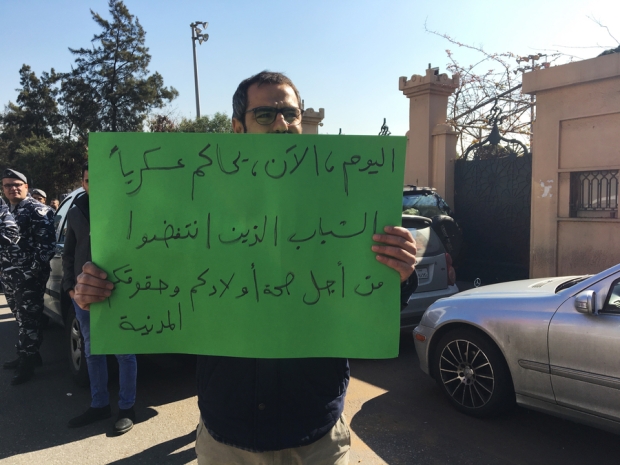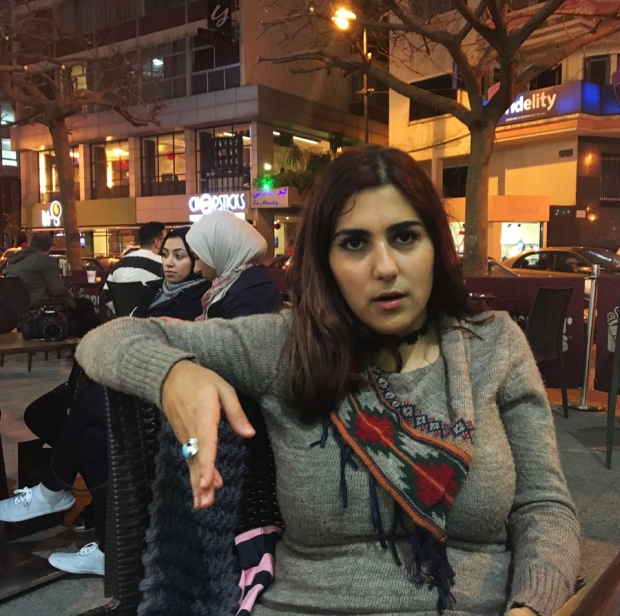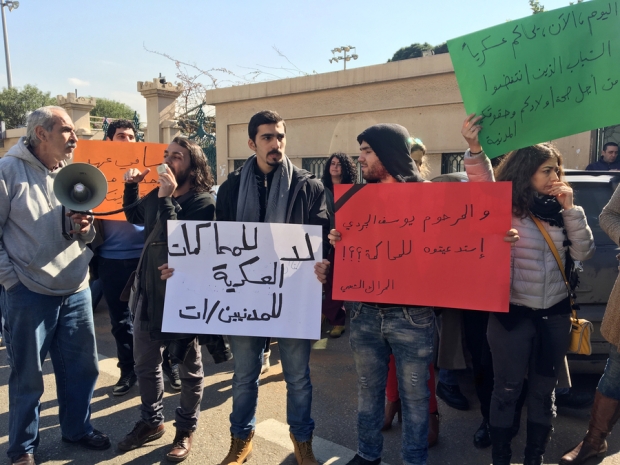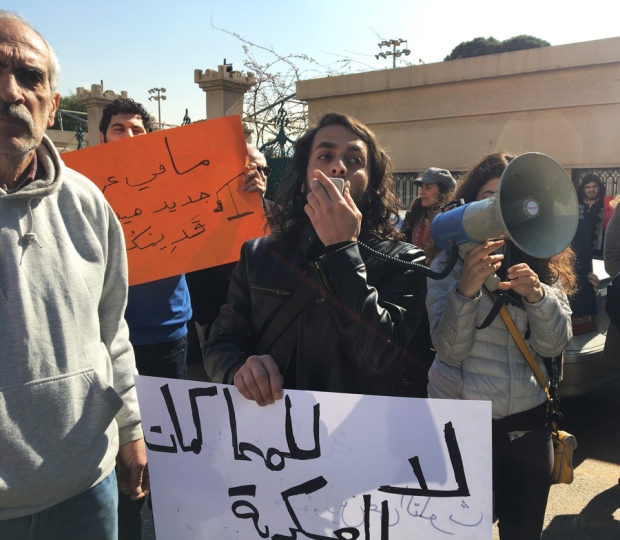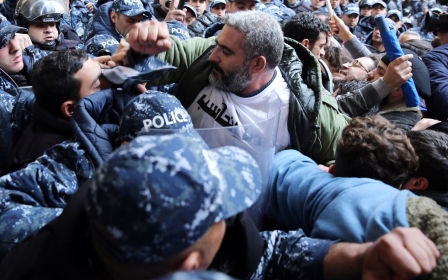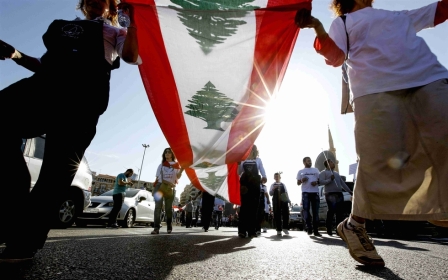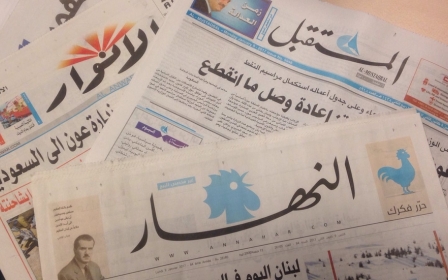Lebanon YouStink trial: Anger, protests and no answers
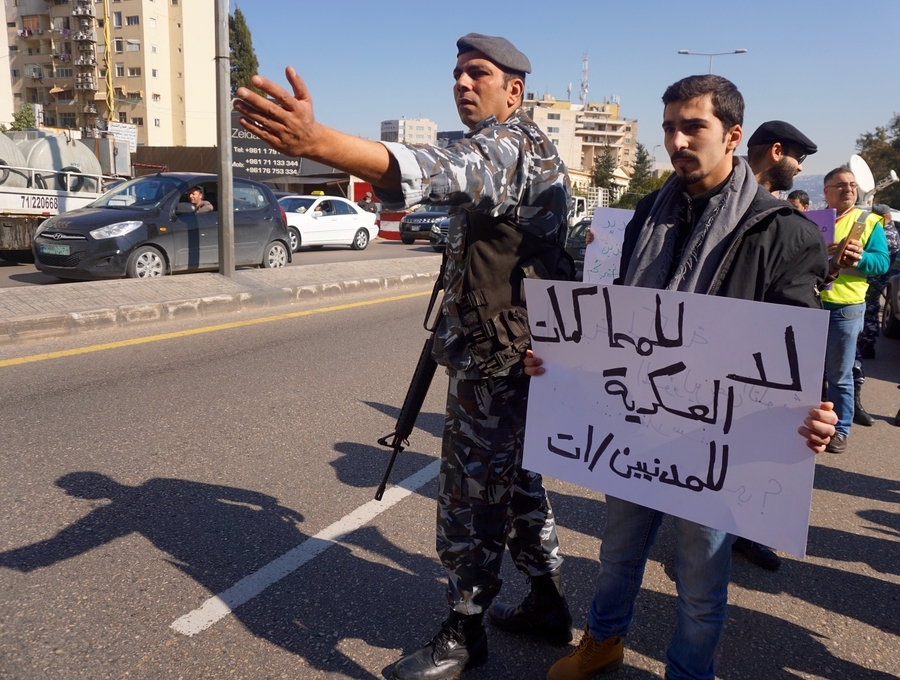
Beirut - Protesters gather outside Beirut's military court, holding placards against the military trial of 14 civilians who joined the YouStink movement against Lebanon's rubbish crisis.
"Today, right now, the military is trying the youth who stood up for your children’s health and your civil rights," read one of the signs held on Monday morning.
The defendants are, among other things, accused of forming riot gangs in October 2015 at the height of the YouStink protests around Martyrs' Square.
And despite the civil nature of the movement, Lebanese law allows for civilians to be tried in military courts - a process which has been condemned by Human Rights Watch.
The 14 have faced two hearings already, where they are brought before a military judge and then sent away with little to no information on the progress of the case.
Monday's hearing was no different, other than being wrought with frustrating delays and finally, after more than five hours, an adjournment for two months until 20 March.
"We thought this would all be over once we were released from the police station that night," says Layal Siblani, a Lebanese law student and one of the defendants. But then they were placed on various charges, including “forming riot gangs” by a military investigative judge, Riad Abu Ghayda, in November 2015.
Lebanon's protesters: Arrested as civilians, tried by the military
Siblani says the group was arrested before riots broke out, stating that she and the others watched the riots unfold on a television screen at Helou prison in Beirut.
But since then, nothing but hearings, delays, and uncertainty.
The protesters’ case was supposed to start at 9.30am, but was delayed by other cases. By 2.30pm, the session ended with deferment.
Talking to MEE at a local coffee shop, Siblani expressed her frustration with the court system, let alone standing trial in military court.
“The judge did not show up until 11.45am, and there were about 75 people in court,” she said.
Protesters add to pressure against military trial
The busy streets outside the court were packed on Monday with cars reading the signs as they drove by. One demonstrator grabbed a megaphone and tried to convince the drivers to park their cars and join them.
As the cars began to slow down, police were quick to intervene. Less than a block away, a busload of riot policemen were gearing up, though they outnumbered the number of demonstrators.
The Lebanese army across the street stood by, passively observing the growing crowd.
Assaad Thebian, a YouStink activist, appeared exasperated. He found the allegations of the protesters forming riot gangs to be absurd.
"The Lebanese parliament were giving free hugs on checkpoints during the civil war," he said, referring to the various militia checkpoints during the 15-year civil war where your fate was often determined on the sect written on your ID card.
Lawyers inside the court meanwhile had called for the transfer of the case to a civilian court.
And of the 14 protestors in court only five had charges that can be tried by military court, but all have have been lumped into one case.
Ghida Frangieh, a lawyer from Legal Agenda acting for the 14 defendants, told MEE that "lawyers submitted a motion for the military court to declare itself not competent to try the protesters".
Frangieh said the lack of military charges against nine defendants were included in the legal argument.
'We will follow you like we always have'
The 14 protesters on trial were arrested on 8 October, 2015 at Martyrs’ Square in downtown Beirut – the last time riots took place during the period of mass protests during Lebanon’s garbage crisis.
While the rally was peaceful, riot police resorted to water canons and teargas after protesters dismantled a makeshift blockade that closed one of the streets.
The clashes also resulted in some mild damage to the five-star Le Gray Hotel, located in the most luxurious district in Beirut.
Lama Fakih, Human Rights Watch's Middle East and North Africa deputy director, stated that the defence wanted to merge the cases of protesters clashing with security forces with the case of security forces attacking protesters, which the plaintiff excluded entirely.
“There were two protesters who required hospitals, one of whom lost an eye, and no investigative has been done into this abuse against protesters,” she said.
Like Frangieh and the protesters’ legal team, as well as Fakih and HRW, George Ghali, project manager at Lebanese human rights organisation Alef echoes these sentiments.
“Proceeding with the trial is not just a form of limitation to the freedom of assembly and expression, but also a grave violation of the principles of a fair trial,” he told MEE.
With the next session is two months away, some of the demonstrators have made it known that the trial is part of the battle against the existing Lebanese establishment.
A demonstrator yelled through the megaphone: “We will follow you like we always have: on the streets and through the ballot box.”
New MEE newsletter: Jerusalem Dispatch
Sign up to get the latest insights and analysis on Israel-Palestine, alongside Turkey Unpacked and other MEE newsletters
Middle East Eye delivers independent and unrivalled coverage and analysis of the Middle East, North Africa and beyond. To learn more about republishing this content and the associated fees, please fill out this form. More about MEE can be found here.


